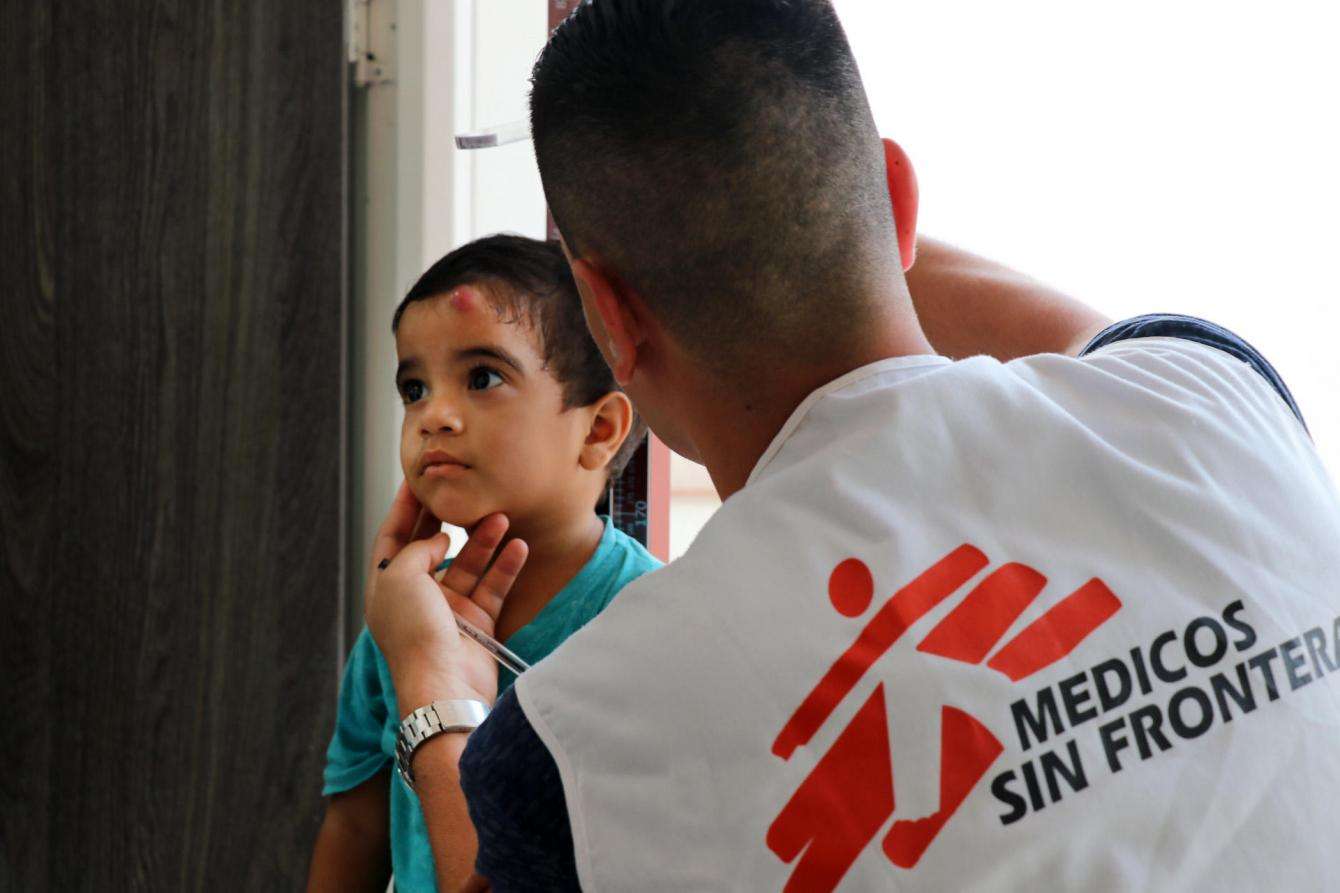It was on the third day of eating only mangoes that Poellis Córdoba and her husband realized that it was time to flee Venezuela. "My husband made a good living as a bricklayer and we lived relatively comfortably,” says Córdoba. “But little by little the situation worsened to the point that we only had enough money to buy sardines and cornmeal. I remember that in the end we only had enough to feed our children. Then we couldn’t even get that, and it was then that my husband arrived with a suitcase full of mangoes. When they were finished, we finally understood that we could not take it anymore.”
First, her husband traveled to meet his brothers who had migrated a few months earlier to Tibú, a Colombian border town in the Norte de Santander region. Seven months later Córdoba arrived with her five-year-old son. It took another year for them to bring their two older children, aged seven and nine. Today, the whole family lives in the informal settlement of Divino Niño, a collection of houses with wooden floors, polyethylene walls, and zinc roofs, where many Venezuelan migrants who cannot afford to pay rent end up.
"Life here has not been easy," says Córdoba. "Sometimes it is really hard for us, but at least food is not lacking for the children.”

Limited options for care
However, migrants still struggle to access affordable health care. In the border regions of La Guajira, Norte de Santander and Arauca, state-run medical services are not open to Venezuelan migrants, except for emergencies, vaccinations, and child birth. As a result, between November 2018 and May 2019, more 12,000 Venezuelans received primary and mental health care from Doctors Without Borders/Médecins Sans Frontières (MSF).
When Córdoba’s youngest child developed stomach problems, she took him to MSF. Among the migrant community, the lack of access to health services leaves children and women particularly vulnerable. From November to May, nearly 40 percent of patients seen at MSF clinics were under five years old; our teams conducted nearly 2,500 prenatal consultations and more than 4,600 family planning sessions. The most frequent health concerns among Venezuelans treated by MSF in Colombia are skin conditions, respiratory infections, urinary tract infections, and gynecological conditions. In children under 14, the most common problems were related to diarrhea and intestinal parasites.
Nearly 1,000 people have received mental health care from MSF, mainly for anxiety and depression caused by the conditions of migration, difficulties finding work, and family separations.
"The lack of access to basic and specialized health services for Venezuelans in Colombia is a health crisis that needs more attention from the international community," says Ellen Rymshaw, MSF head of mission in Colombia. "The medical needs of this population have overwhelmed the Colombian health system, which at this time does not have the resources or personnel to attend to them. Due to these limitations, many migrant patients have not been able to receive timely attention in hospital emergency rooms, despite being entitled to this by law.”

Growing needs
More than four million refugees and migrants have fled political and economic turmoil in Venezuela, with some 1.3 million now living in Colombia. According to officials there are now some 350,000 Venezuelan people residing in the Colombian border regions of Norte de Santander, Arauca, and La Guajira alone. As the crisis in Venezuela continues, thousands more cross the border every day in search of medical care and medicines. Many suffer from chronic conditions and need treatment that they can no longer access in Venezuela.
Yamileth Gómez traveled more than four hours to reach Colombia from Seboruco, in Venezuela’s Táchira state, in search of treatment for an overactive thyroid. "In Venezuela the medicine I need is not available, and here it costs me more than what I can afford at the moment,” she says. “I even had to come asking for a ride because I did not have money for a bus ticket.”
Gómez was a teacher but had to stop working because of her symptoms. "MSF will help with the medication,” she says. “I hope to get it so that I can return to a normal life."
After fleeing their homes, Venezuelans are arriving in a country that does not offer them safe housing, work, or comprehensive health care. “We are calling for greater involvement from the international community to facilitate humanitarian assistance and improve access to health care for the Venezuelan population through direct support to hospitals,” says MSF’s Rymshaw. “This is a crisis that urgently needs to be addressed.”




